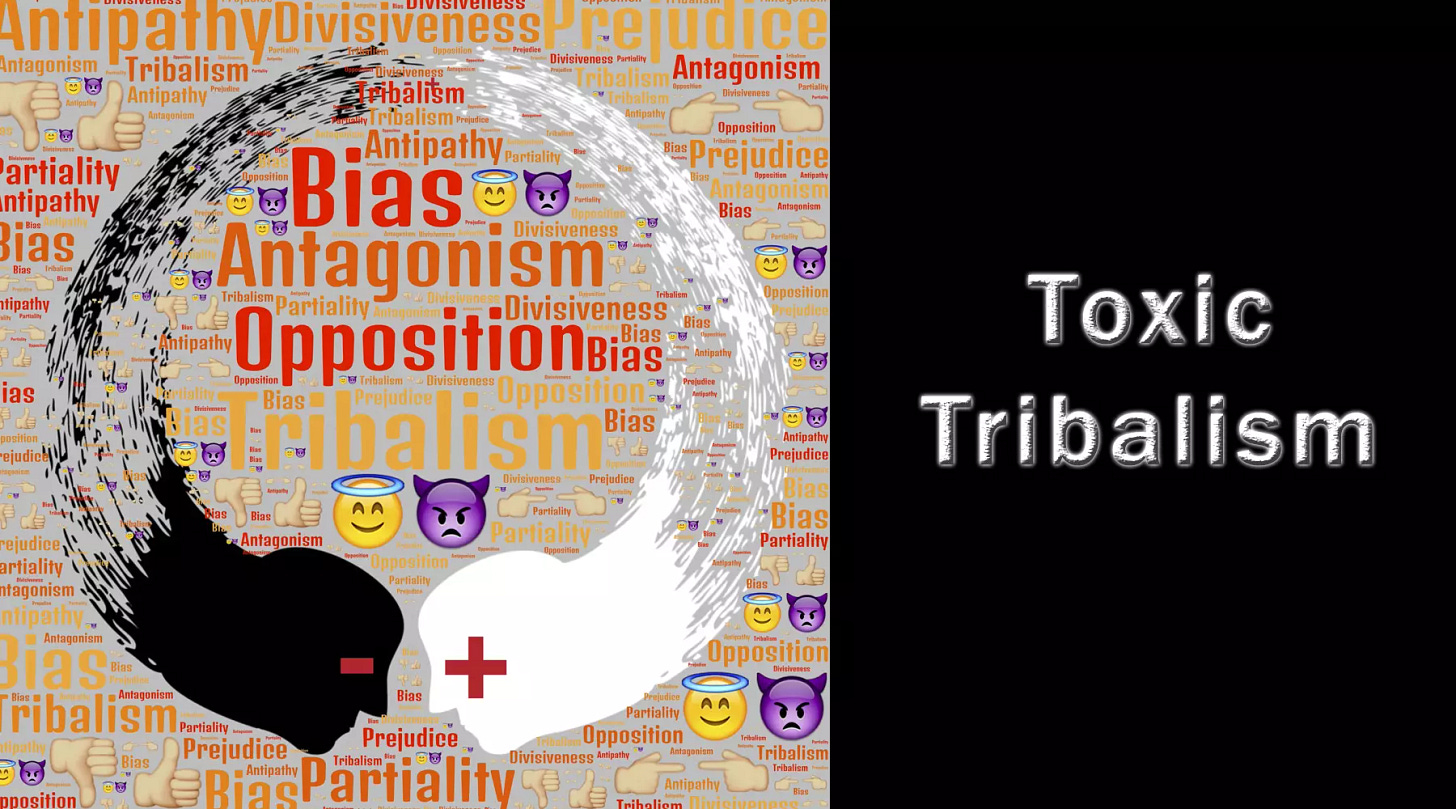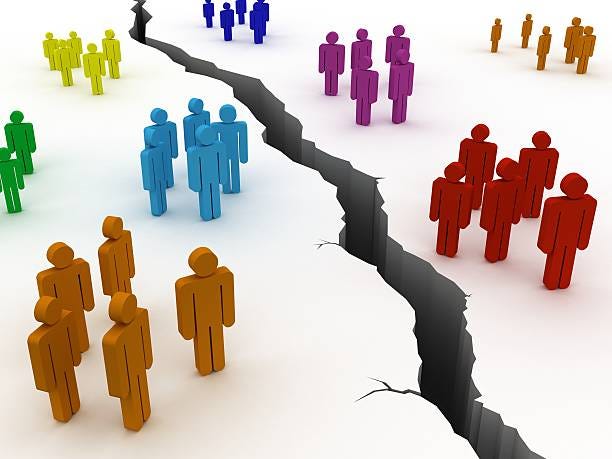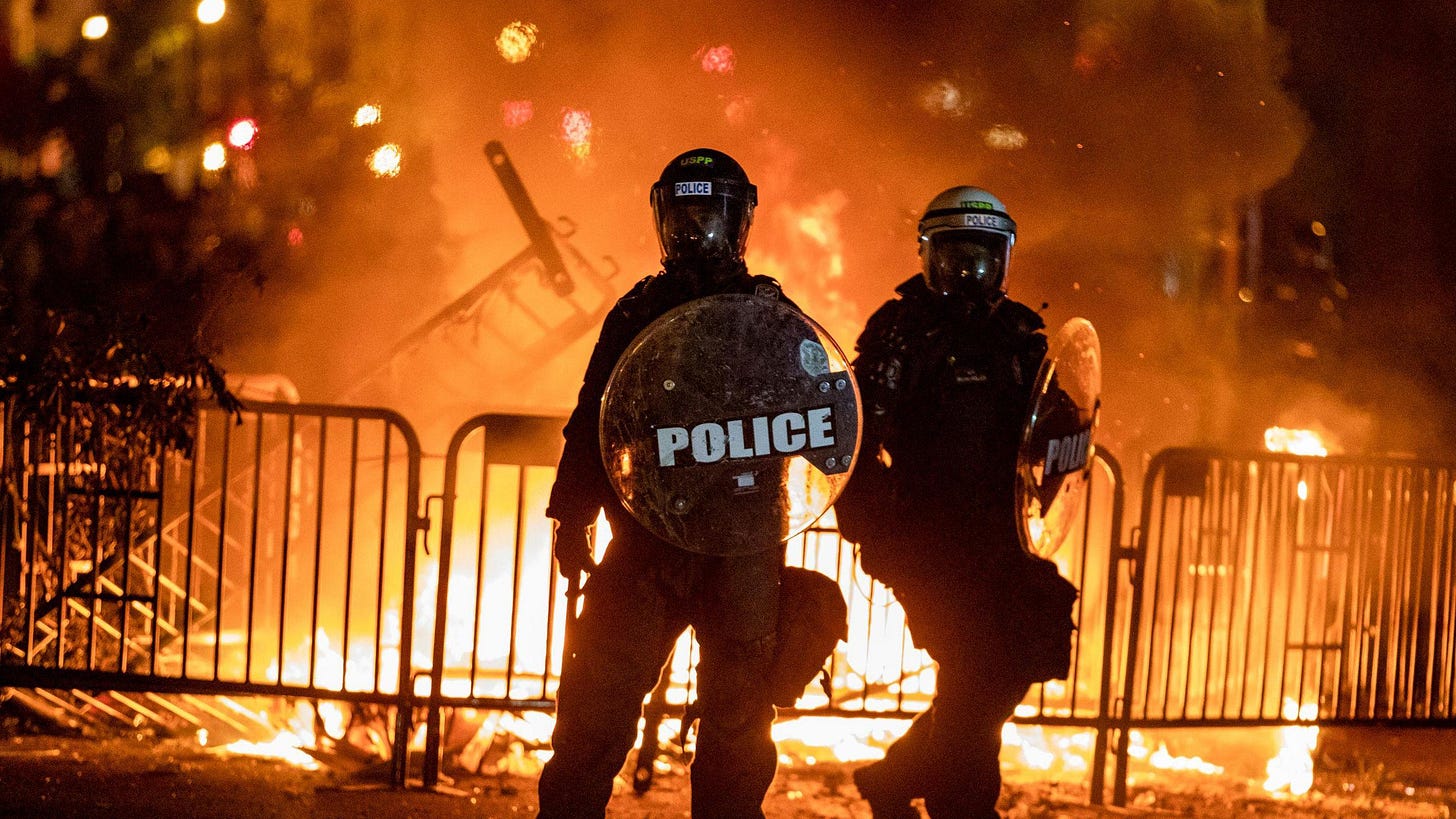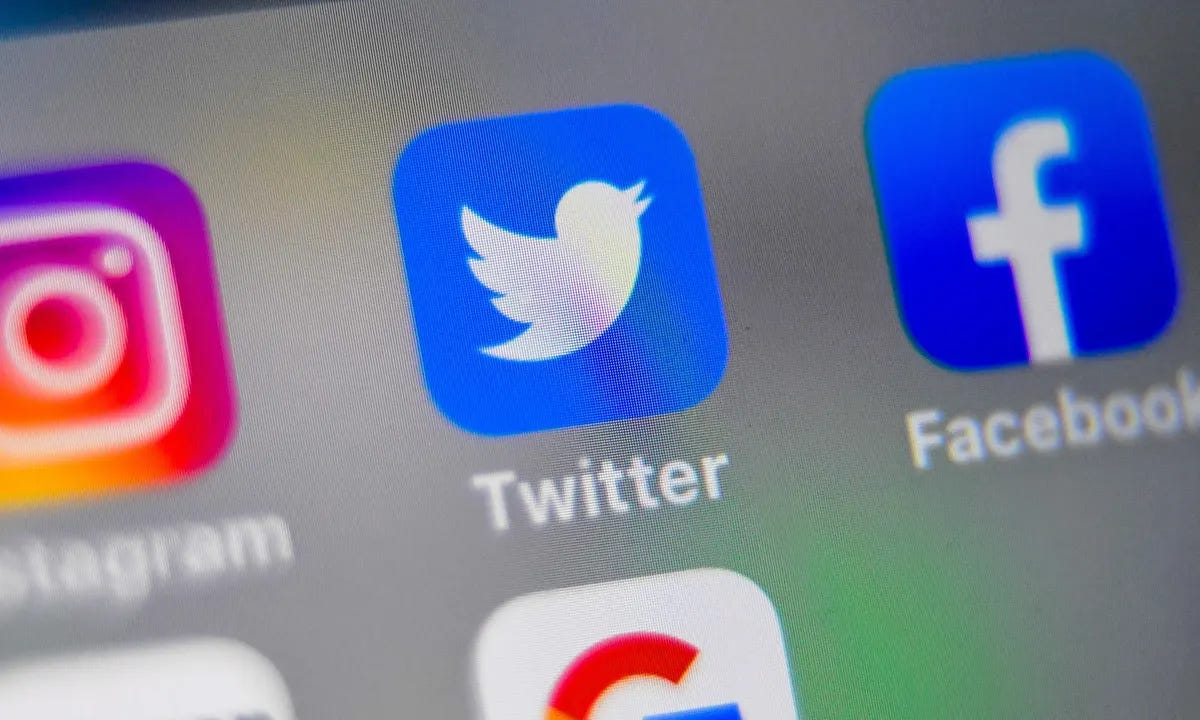#3. The Tribalization of our Nations
How the Rise in Tribal Attitudes at Macro & Micro Levels are Creating an Unstable Society.
Introduction
In recent years, the world has witnessed a rise in tribal politics, a phenomenon where individuals align themselves with political groups or parties based on shared identities, beliefs, and values, rather than strictly on issues or policies. This has led to a strong sense of loyalty and solidarity within a particular political "tribe," but has also resulted in a lack of compromise and a divisive political climate. Although not a new phenomena, this has been amplified in part since 2016 with the rise of Donald Trump in the US and Brexit in Europe. In this article, we will explore the psychological processes that underlie tribal politics, and how it is leading to increased division and tension between different groups in society. We will also examine the impact of tribal politics at a micro level such as in popular culture and how it is undermining reasonable and critical thinking.
The Psychological Processes of Tribal Politics
One of the key psychological processes that underlies tribal politics is group identity. People have a fundamental need to belong and to identify with a group, and this need is often met through membership in political groups or parties. When individuals identify strongly with a particular political "tribe," they may be more likely to view opposing views as a threat to their tribe's interests, rather than as valid perspectives that deserve consideration. In the field, this is known as "in-group bias" which is the tendency to favor one's own group over others.
Another key psychological process is social identity theory. Social identity theory argues that people's sense of self is derived from their membership in social groups, and that their behavior is influenced by their perception of how the group is perceived by others. When political leaders use tribal identities to mobilize support, they may also create a sense of us-versus-them mentality, where people view those who do not share their identity as "the other" and therefore the other point of view is deemed as incorrect or fallacies.
Tribalism can take hold within an individual’s mind for several reasons including:
Group Identity: When individuals identify strongly with a particular political tribe, they may view opposing views as a threat to their tribe's interests, rather than as valid perspectives that deserve consideration. This can lead to a strong sense of loyalty and solidarity within the tribe, but also to a lack of compromise and a divisive political climate.
Confirmation Bias: When individuals are surrounded by like-minded individuals and consume information that confirms their existing beliefs, they may become more entrenched in their positions and less willing to consider opposing views. This effectively serves as an echo chamber where your views are constantly validated by like minded people.
Social Identity Complexity: People with less complex social identities may be more likely to adopt extreme positions on issues, and less likely to be able to consider the perspectives of other groups.
The Backfire effect: This is a phenomenon when people's belief in something is strengthened when it is challenged, which can make them even more resistant to change. This can be seen in Religion for example.
The Self-serving bias: People's tendency to interpret information in a way that supports their beliefs and to discount information that contradicts their beliefs.
It is important to distinguish that tribalism doesn’t just refer to the loyalty of a group. It relates to the loyalty of a group at the expense of all conflicting groups. This means that the group comes first at all costs. If harm comes to the conflicting groups, that’s even better.
Popular Culture
Tribalism is traditionally seen in political or institutional structures however over the years it has become entrenched in popular culture. The mainstream icons are now either seen as hero or villain, no in between. You cannot be neutral on Justin Bieber. You either love him or hate him. It is an identity. You can’t be neutral on Marvel. It’s either love or hate. There is a clear black and white tribal nature where the gray is simply a place where the sane minority hang out.
Sports is another example. Sports is tribal in nature due to the competitive and almost cult like following. If you support a team, you never change that team. However when it comes to players, there is something magical about witnessing an athlete at the peak of their powers. Athletes that are able to shine above their professional peers are something to be awestruck about. And yet somehow we’ve ended up in a place where a player cannot be great because there is always someone better.
Take the NBA. The ongoing debate for G.O.A.T status between Michael Jordan and LeBron James is a fervent one. They are clearly two of the greatest basketball players of all time, if not the best two. The question is who is better? Being rational, one might suggest it doesn’t matter. They are both superstar players that have broken multiple records. And yet if you look online you won’t simply see, “Jordan is GOAT” or “LeBron is GOAT”. You will see people trash James or Jordan depending on their chosen GOAT. It is not enough that one must be the best but the other must also be disrespected. Tribalism.
Similarly in the world of football, Cristiano Ronaldo and Lionel Messi are arguably the two greatest players of all time. Certainly the greatest of their generation. Fans of both are so emotionally attached to the players that it’s simply not enough to recognize one as the greatest. They must also downplay the other’s achievements. Instead of uniting in admiring two excellent footballers, the last decade has been a barrage fest.
This even extends to the teams they represented. Barca fans would rejoice when Juventus lost while Ronaldo was there. And vice-versa with Messi at PSG. The tribalism at a player level traversed through nations at a club level.

This polarization in popular culture is also a reflection of a herd mentality, which refers to the phenomenon of people following the behavior or opinions of a group, rather than thinking independently. When individuals identify strongly with a particular political "tribe," they may be more likely to adopt the views and opinions of the group, rather than critically evaluating the issues for themselves.
CrItIcAl ThInKiNg
The rise of tribal politics has naturally led to a decrease in reasonable and critical thinking, as people may become more entrenched in their positions and less willing to compromise when they see issues through the lens of their tribal identity. This can be seen in the way that people approach discussions and debates on political issues. Instead of listening to and considering perspectives of those who hold different views, individuals may shut down or dismiss opposing views without giving them proper consideration. There is an air of highly misplaced arrogance and a dismissive attitude in the tribe members.
In addition, the rise of social media has made it easier for individuals to surround themselves with like-minded individuals, leading to the reinforcement of existing beliefs and a lack of exposure to diverse perspectives. This can further contribute to the lack of reasonable and critical thinking within a particular political tribe.
Effectively, the role of critical thinking is becoming more and more obsolete as individuals prefer to take information from the tribe at face value, whether they truly believe it or not, rather than dissect the information. This is unusual when you factor in the vast library of information we have at our fingertips. And even though it is believed that older generations tend to be more tribal, there is evidence that the younger generation is not immune to this.
An example of this is the recently released Twitter Files. The Twitter Files revealed government intervention on suppression of individuals on Twitter for the benefit of the American political parties. The information within the Twitter Files is explosive and extremely concerning for free speech. However, the issues, as always became politicized due to the right / left nature associated with the previous Twitter owners and the new Twitter owner Elon Musk. Therefore the message is lost on rival tribes because their focus is on the messenger.

Rule of Law
In addition to creating a divisive and polarizing political climate, tribal politics can also undermine the rule of law. The rule of law is a principle that ensures that laws are applied equally and fairly to all citizens, regardless of their political beliefs or affiliations. It is a pillar of democracy. However, when individuals become deeply entrenched in their political beliefs and view those who hold opposing views as "the other," they are more likely to dismiss wrongdoings by their tribe and tribe members. In some cases, the tribalism is so fevered that tribe members will openly support each other in the face of clear criminal actions. Evidence of this is plenty but you can see it all over the political spectrum. Some examples:
I’ve tried to be objective and provide both left and right examples of potentially criminal activity being conducted by political figures who still enjoy public support.
When political leaders use tribal identities to mobilize support, they do so to create a sense of us-versus-them mentality. This rhetoric creates a firestorm for misinformation, anger and fosters division. The reaction is of more support towards the party, leading to questionable / corrupt policies that do not take into account the needs and interests of the same people that support them.
In situations where the rule of law is undermined, it creates a situation where the laws are not applied fairly and equally to all citizens, which can lead to a breakdown of trust in the government and institutions, and can also lead to social unrest and instability.
The Bird is the Word
The rise of social media has had a major impact on the way that individuals engage with political issues and form their political identities. Social media platforms, such as Facebook, Twitter, and Instagram, provide individuals with an easy way to connect with like-minded individuals and to consume information that confirms their existing beliefs. This can lead to the reinforcement of existing beliefs and a lack of exposure to diverse perspectives.
Furthermore, social media algorithms often serve to amplify and promote content that is likely to generate engagement, such as likes, shares, and comments. This was seen in the Cambridge Analytica scandal. Furthermore, it is now widely known that there are huge companies known as Troll Farms that are funded for the purpose of spreading misinformation online. This lead to the creation of echo chambers where individuals are only exposed to information that confirms their existing beliefs. In these echo chambers, individuals may become more entrenched in their positions and less willing to consider opposing views.
Social media has created the largest known live forum with major figures able to reach hundreds of millions of people instantly. This access to peoples homes and ultimately psyche has changed the way we consume information and debate. Social media, for all its benefits, has created a seismic shift in our ability to communicate. Reasonable, centrist thinking does not garner likes. Extremity does. People want to be shocked. They want to be impacted, whether positive or negative, they want dopamine and adrenaline. This craving creates a need for intense debate and an even larger desire to win it.
The way social media companies and media companies post through social media to attract their users creates an environment for division and hostility which perpetuates the cycle of tribalism.
TL;DR
The rise of tribal politics is a complex and multifaceted phenomenon that has significant implications for society and democracy. The psychological processes that underline tribal politics, such as group identity and social identity theory, play a significant role in shaping the way that individuals approach political issues. The impact of tribal politics on popular culture, and the resulting polarization of everything, further undermine reasonable and critical thinking. The use of social media further amplifies the problem, leading to echo chambers, the creation of us-versus-them mentality and the promotion of divisiveness by some political leaders. Additionally, tribal politics can also undermine the rule of law, leading to a breakdown of trust in the government and institutions, and can also lead to social unrest and instability.
It is important for individuals to be aware of the impact that tribal politics can have on their thinking and behavior, and to make an effort to critically evaluate issues and consider the perspectives of others. Only then can we hope to overcome the divisiveness and lack of compromise that tribal politics promotes and work towards a more inclusive, peaceful and democratic society.





This article embodies all my sentiments on the matter and gives me the privilege of knowing that such a phenomenon is actually called tribalism. Indeed, social media has helped to amplify differences and arguments and has blurred the boundaries of right and wrong, rational and irrational. Thank you for this article, Sir. It will certainly be shared. One of my new year's resolutions for 2023 is to be less tribal and to be more of a silent observer.